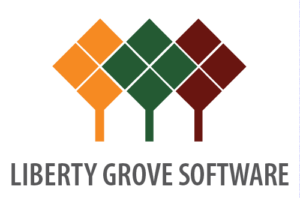5 Ways an ERP Helps with Manufacturing Compliance
You don’t need us to tell you that manufacturing compliance is becoming increasingly complex. Customers want top-quality products delivered in lickety-split timing at the lowest prices. That kind of pressure can result in employees making errors or taking shortcuts that can put your manufacturing compliance record at risk.

It’s why more and more manufacturing executives are turning to ERP (Enterprise Resource Planning) solutions to increase productivity, ensure compliance with regulatory requirements, and mitigate risk. A modern ERP, like Microsoft Dynamics 365 Business Central ERP software from Liberty Grove, improves your data visibility, security, and traceability – and ensures your organization is compliant across your supply chain.
An ERP is an immensely valuable tool for organizations seeking to maintain high compliance standards constantly.
Accounting standards are periodically changed to reflect new compliance demands, and compliance has recently become more challenging due to the rising use of billing systems such as subscription billing or complex leasing management.
As a result, it might become increasingly difficult to guarantee that you are checking all the appropriate boxes.
That’s where an ERP comes in. It reduces the time your employees spend on tasks that can be readily automated and manages all the moving pieces that affect compliance. In addition, it will improve efficiency throughout your company's many procedures.
Here are 5 Ways an ERP Helps with Manufacturing Compliance
1. Increases your company's visibility and transparency
Compliance relies significantly on the capacity to manage business operations visibly and transparently. One of the most difficult challenges businesses confront is accurate revenue reporting and recognition. The rise in complex billing arrangements has further exacerbated the difficulties of accurate and honest reporting.
Traditionally, this type of data would be tracked in a complex network of spreadsheets, with a small, specialized crew putting in lengthy hours of laborious and tedious data entry. Manual data entry is prone to errors due to its repetitious nature. Extracting the necessary data is not only labor-intensive but can also be daunting. All of this is easily manageable within an ERP system.
2. An ERP increases compliance by eliminating inaccuracies in data
Automating repetitive operations with an ERP system reduces errors and frees up your team's time, allowing your team to triple-check all compliance requirements. It is difficult to demonstrate compliance when there are data tracking and administration faults. Manual data entry can sometimes result in errors that cause problems later on.
All this changes with an industry-specific ERP. It provides the tools to streamline procedures and establish consistent recording and saving data standards. As a result, you have greater control over your data and may keep historical records in a single system. You reduce the possibility of inaccuracy and increase the reliability of your data.
3. Better manage complex billing cycles
As previously said, an ERP may simplify even the most complex billing cycles. If you manage a recurring billing model, look for an ERP system with features to help with compliance. Automating your processes and simplifying your data will give you rapid and effective access to reports.

4. Make your data audit-ready
Month- and year-end periods can be complex. An ERP system will centralize your organization's reports and make them easily accessible. That enables you to locate the appropriate answers when you need them. An ERP allows you to conduct audits swiftly and efficiently without searching for the necessary data. This simplifies your accounting team's life during stressful periods (such as tax season) and gives them peace of mind, knowing that their data is consistent and accurate. Nothing is worse than having to spend significant time and energy re-entering data that might have been automated.
5. Consistent reporting across various organizations in your ERP enhances compliance
Compliance becomes increasingly challenging as your firm grows and you manage additional assets. An ERP system will bring consistency to your reports across various entities or companies. As a result, it makes it easier to comply by making data more available across all institutions. Investing in an ERP that can scale with your company is critical for fast-growing businesses since it allows you to maintain track of data and remain compliant as you grow.
An Industry-specific ERP Enhances Compliance by Understanding Your Sector
A company that has developed a system for your industry has most likely worked with hundreds of other businesses with similar requirements. Organizations probably have many similarities regarding compliance, especially those in the same industry. Investing the extra effort required to guarantee that your tools are constructed to meet the demands of your industry and that your accounts are in order can save you time and money in the long run.
Often, organizations attempt to apply sophisticated workarounds with technology that has yet to prove itself in their field. Do your research and choose an ERP tailored to your business or with industry-specific add-ons designed to address the complexities of the processes that need to be made apparent and transparent.
Does an ERP Solution Protect Your Manufacturing Compliance?
Liberty Grove can help you use many tools and services to achieve a successful cloud ERP deployment, improve your organization's productivity, ensure compliance with regulatory requirements, and mitigate risk.
Contact Liberty Grove for a complimentary consultation on how Microsoft Dynamics 365 Business Central ERP software can help you maintain compliance standards and protect your reputation.
Related reading:
12 Ways ERP Improves Shop Floor Productivity (libertygrove.com)
Top 6 Advantages of Business Process Automation (libertygrove.com)
Best 10 Reasons to Move Your On-Premises ERP to the Cloud - Liberty Grove Software
About the author
Liberty Grove Software is an established Microsoft Partner that focuses on providing customers with sales, service, and support for Microsoft Dynamics 365 Business Central/NAV solutions and training and upgrades.
Liberty Grove Software helps manufacturing firms compete by automating tedious operations with Microsoft technologies. Our extensive manufacturing knowledge has established us as the preferred Microsoft partner for assisting mid-sized manufacturers in increasing production.
Over more than 25 years, Liberty Grove has assisted hundreds of customers with businesses ranging from small to mid-sized to Microsoft Partners in implementing, training, customization, and upgrading Microsoft Dynamics ERP solutions.
The organization is one of only a few companies worldwide that Microsoft recognizes as qualified to provide Business Central/NAV Upgrade Service Centers.

